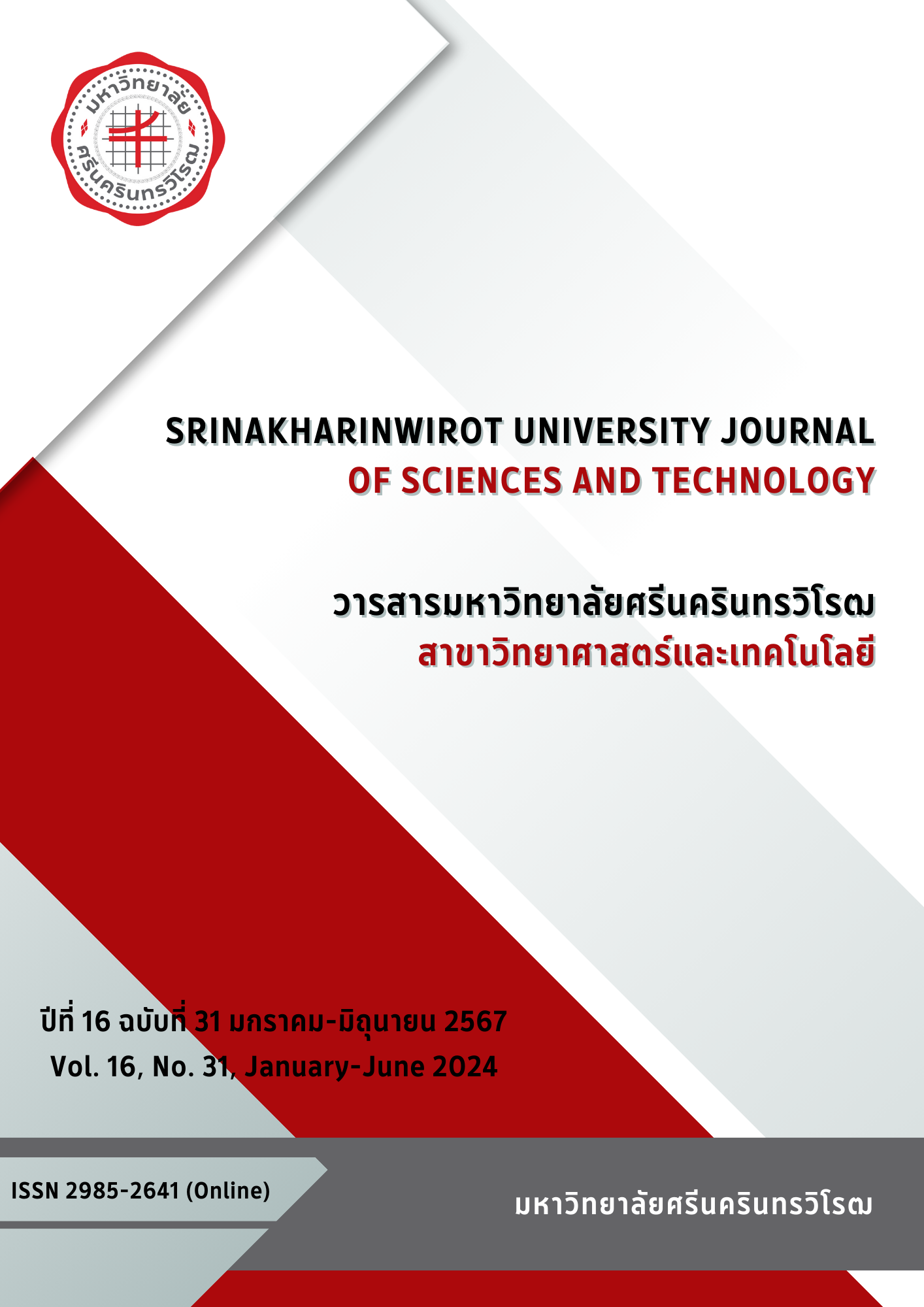DEVELOPMENT OF CHEMOTHERAPY CALCULATE DOSE PROGRAM VIA PREPRINTED ORDER TO PREVENT MEDICATION ERROR AND REDUCE TIME ORDER TO CALCULATE DOSE OF CHEMOTHERAPY
Keywords:
Calculate Dose of Chemotherapy, Chemotherapy Dose-Calculating Program, Medication Error, Preprinted OrderAbstract
This research study aimed to test efficacy of chemotherapy dose-calculating tool (Chemotherapy calculate dose program via preprinted order) that resulted in reducing medication error and time to calculate dose of chemotherapy. The sample consisted of patient aged 15 years and over who get intravenous infusion of chemotherapy treatment at Panyanathaphikkhu Chonprathan Medical Center. The data before using Chemotherapy dose-calculating program was collected among 280 chemotherapy prescriptions. Comparing with the data after using chemotherapy dose-calculating program among 280 chemotherapy prescriptions. This study was to collect the data of Medication errors, Time to calculate dose of chemotherapy by physicians and Time to verify dose of chemotherapy by pharmacists. The result showed data of medication error before using the program was 5 times calculated as a rate equal to 17.85 per 1,000 chemotherapy prescriptions. Comparing with the data of medication error after using program, the medication error was 0 time calculated as a rate equal to 0 per 1,000 chemotherapy prescriptions. Chemotherapy dose-calculating program was significantly associated with 100% reduction in rate of medication error. The average times to calculate dose of chemotherapy by oncologists before using Chemotherapy dose-calculating program and after using the program were 1.34 and 0.26 minutes per one chemotherapy prescription, respectively. Chemotherapy dose-calculating program was significantly associated with 80% reduction in average time. And the average times to verify dose of chemotherapy by pharmacists before using Chemotherapy dose-calculating program and after using the program were 0.05 and 0.09 minutes per one chemotherapy prescription, respectively. Chemotherapy dose-calculating program was significantly associated with 82% reduction in average times. This research study showed chemotherapy calculate dose program via preprinted order was associated with reduction of medication error and time to calculate dose of chemotherapy. This program had benefits to patients and physicians. The limitation of program was the database cannot be online, however it can be an opportunity to develop the program in the future.
Downloads
References
Wongkarnpat. (2015). NCDs is health crisis and global crisis, the disease from behavior ourselves. Retrieved July 11, 2018, from http://www.wongkarnpat.com/viewpat.php?id=1608
Hfocus. (2017). The 5 do’s and don’t far from cancer. Retrieved July 11, 2018, from https://www.hfocus.org/content/2017/12/15058
National Cancer Iinstitute. (2021). Types of Cancer Treatment. Retrieved May 31, 2021, from https://www.cancer.gov/about-cancer/treatment/types
National Cancer Iinstitute of Thailand. (2021). Cancer treatment according to international practiced in Thailand. Retrieved May 31, 2021, from https://www.nci.go.th/th/Knowledge/treat.html
Faculty of Medicine Ramathibodi Hospital. (2018). Cancer treatment guidelines. Retrieved May 31, 2021, from https://med.mahidol.ac.th/cancer_center/th/nurse/guid
Siriraj Piyamaharajkarun Hospital. (2021). Deep konwledge about how to treat breast cancer. Retrieved May 31, 2021, from https://www.siphhospital.com/th/news/article/share/breast-cancer-treatment
Cleveland Clinic. (2024). Chemotherapy. Retrieved from https://my.clevelandclinic.org/health/treatments/24323-chemotherapy-drugs
Mayo Clinic. (2024). Chemotherapy. Retrieved from https://www.mayoclinic.org/tests-procedures/chemotherapy/about/pac-20385033
American Cancer Society. (2018). How is chemotherapy used to treat cancer?. Retrieved Jul 12, 2018, from https://www.cancer.org/cancer/managing-cancer/treatment-types/chemotherapy/how-is-chemotherapy-used-to-treat-cancer.html
Hamza, N. A., Sallam, S. A., and El-Nimr, N. A. (2013). Rates and Types of Prescribing Errors and Related Interventions in Oncology. International Journal of Current Microbiology and Applied Sciences, 2(12), 435-445. Retrieved July 12, 2018, from https://www.ijcmas.com/vol-2-12/Nouran%20Ameen%20Hamza,%20et%20al.pdf
Tran, M. (2000). The impact of introducing pre-printed chemotherapy medication charts to a day chemotherapy unit. Journal of Oncology Pharmacy Practice, 6(2), 64-69. Retrieved July 11, 2018, https://doi.org/10.1177/107815520000600206
Meisenberg, B. R., Wright, R. R., and Brady-Copertino, C. J. (2014). Reduction in chemotherapy order errors with computerized physician order entry. Journal of Oncology Practice, 10(1), e5-e9. https://doi.org/10.1200/JOP.2013.000903
Martin, D. B., Kaemingk, D., Frieze, D., Hendrie, P., and Payne, T. H. (2015). Safe Implementation of Computerized Provider order Entry for Adult Oncology. Applied Clinical Informatics, 6(4), 638-649. Retrieved July 12, 2018, from https://www.ncbi.nlm.nih.gov/pmc/articles/PMC4704034/pdf/ACI-06-0638.pdf
Tungkhasamit, T., and Bamrung, I. (2017). Cumputerized physician ordering entry system for chemotherapy at Udon Thani Cancer Hospital. Journal of the Thai Medical Informatics Association, 2, 65-71. https://drive.google.com/file/d/1wgE649VSNuTC0R7-4xoOug-4kFJ2aUNN/view?pli=1
Ratanadatsakul, J., and Ratanadatsakul, P. (2017). Medication error can help the drug system. Retrieved May 31, 2021, from https://ccpe.pharmacycouncil.org/showfile.php?file=303%3B
Sarngosone, N. (2018). CPE: Chemotherapy dosing in special populations: Amputees and obese patients. Retrieved July 11, 2018, from http://ccpe.pharmacycouncil.org/showfile.php?file=402
Sookprasert, A. (2011). A step by practical guide before giving chemotherapy. Retrieved July 11, 2018, from https://www.scribd.com/document/433366973/Step-by-Step-Guide-Before-Ct-2010-Version
Ettinger, D. S., Berger, M. j., Aston, J., Barbour, S., Bergsbaken, J., Bierman, P. J., Brandt, D., Dolan, D. E., Ellis, G., Kim, E. J., Kirkegaard, S., Kloth, D. D., Lagman, R., Lim, D., Loprinzi, C., Ma, C. X., Maurer, V., Michaud, L. B., Nabell, L. M., Noonan, K., Roeland, E., Rugo, H. S., Schwartzberg, L. S., Scullion, B., Timoney, J., Todaro, B., and Urba, S. G. (2017). Antiemesis Version 2.2017. Retrieved June 6, 2021, from https://oncolife.com.ua/doc/nccn/Antiemesis.pdf
Mancini, R., and Modlin, J. (2011). Chemotherapy administration sequence: A review of the literature and creation of a sequencing chart. Journal of Hematology Oncology Pharmacy, 1(1), 17-25. Retrieved June 6, 2021, from https://jhoponline.com/jhop-issue-archive/2011-issues/march-vol-1-no-1/13240-top-13240
Downloads
Published
How to Cite
Issue
Section
License
Copyright (c) 2024 Srinakharinwirot University Journal of Sciences and Technology

This work is licensed under a Creative Commons Attribution-NonCommercial-NoDerivatives 4.0 International License.
Srinakharinwirot University Journal of Sciences and Technology is licensed Under a Creative Commons Attribution-NonCommercial-NoDerivs 4.0 International (CC-BY-NC-ND 4.0) License, Unless Otherwise Stated. Please Read Journal Policies Page for More Information on Open Access, Copyright and Permissions.



